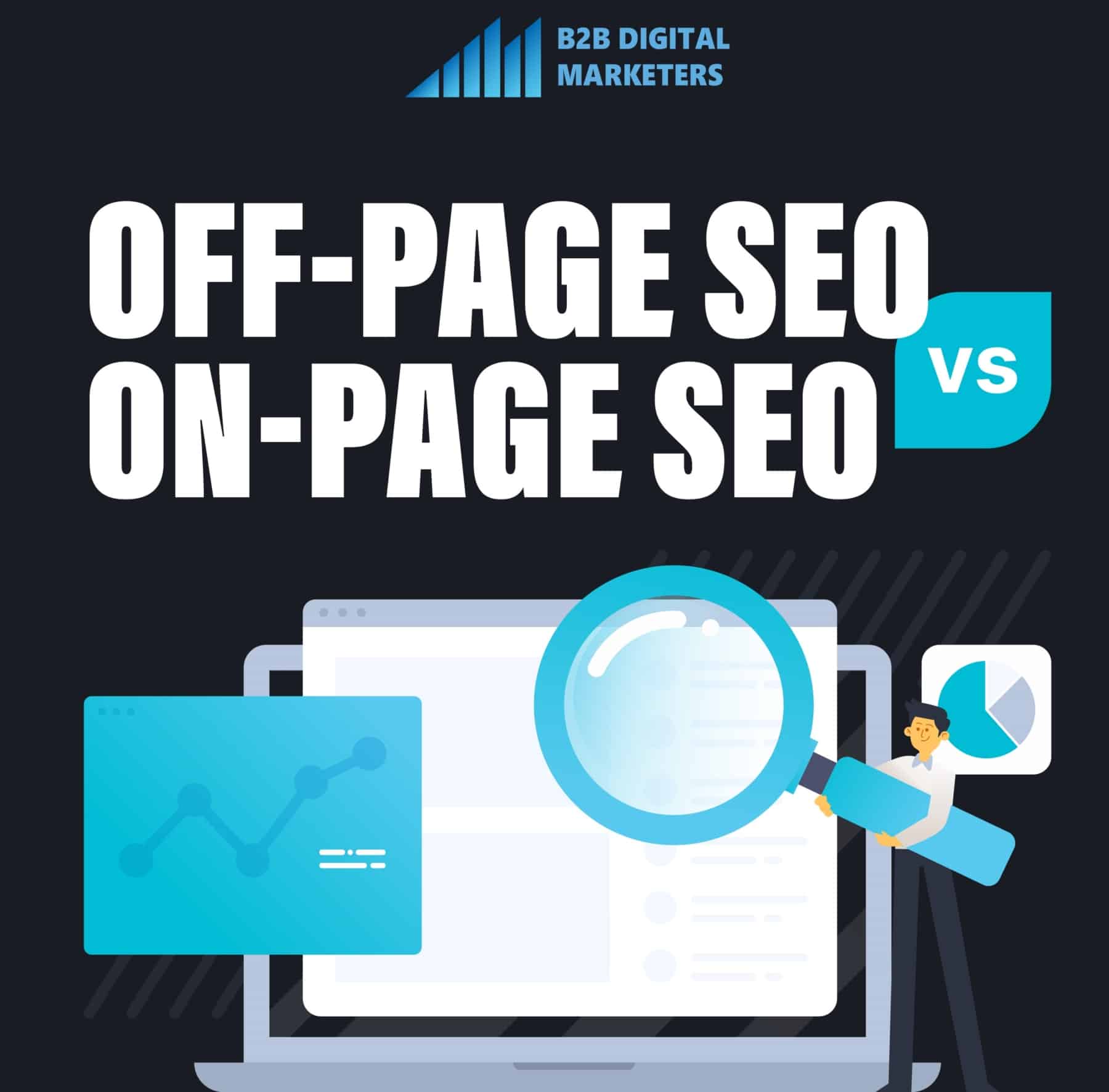
In this article, we will analyze On-page SEO vs Off-Page SEO and you will get a handy infographic that you can use as an on-page SEO and off-page SEO checklist for your website.
Both these SEO strategies are important to your website success and understanding what they are, what makes them different, and how you can apply them to your website will help you to improve your search marketing results.
Of course, feel free to include this infographic on your website if you find it relevant, and don’t forget to mention the source.
Infographic On-Page SEO vs Off-Page SEO

On-Page SEO
On-Page SEO is made up of many different ranking factors that Google is using to better understand what your content and website are about.
However, On-Page SEO is not only the thing that you need to do on your website. On-Page SEO combined with high-quality content made by an expert in the industry is a key to your success in the SEO game.
What is On-Page SEO
On-Page SEO or on-site search engine optimization is a process of optimizing your web pages for specific keywords and improving user experience in order to improve search visibility and traffic of the page.
Why You Need On-Page SEO
On-Page SEO helps search engines like Google to better understand what your content is about and index your content properly. Thus, improve the relevancy of your traffic and the ranking of your website.
And while Google is regularly updating its algorithm to promote clean On-Page SEO practices, no doubt properly implemented on-page SEO strategies improve your ranking.
And what is great about on-page SEO is that you have absolute control over this strategy, and you can improve the ranking for your most important pages. Unlike other SEO strategies, on-page SEO is totally in your hands.
With that in mind, let’s move to some of the most important on-page SEO practices.
Best On-Page SEO Practices
There is so much you can do with On-Page SEO to improve your ranking and traffic. However not always is good to over-optimize your web page and search engines like Google can see it as a spammy tactic and penalize you such as keyword stuffing.
Therefore, before you take any action you should consider the goal of your page, the targeted and relevant keywords, and what media you want to include.
With that here is a list of the most important on-page SEO practices that you should implement for your web pages and website.
- SEO URL: Try to include your targeted keyword in the URL only.
- Headers Optimization: Try to include your targeted and relevant keyword.
- Title Tags: Try to include your targeted keyword at the beginning
- Meta Description: Write short and intrigue copy with your targeted keyword and related keyword.
- Keyword Density: Try to go around 0.5%-1% Anything above can seems spammy.
- Keyword Placement: Include your keyword on your text, images, headers, title, and meta description.
- SEO Image Optimization: Enable lazy load, compress your images, add keywords in the name and alt text. (Not in every) Describe the picture like to a blind person in the alt text.
- Website Architecture: Ensure your most important pages are not more than 3 clicks away and users can navigate easily.
- Website Security: Secure your website with SSL and security plugins.
- Mobile Friendliness: Have nice looking website for every size of the display. Responsiveness is the key.
- Website Speed: Add caching plugin and CDN to your website. Don’t be cheap on your hosting servers. (Check out HostGator alternatives.)
- E-A-T: Add about us page, get backlinks, create social media. Add social media profiles of founders and important people.
- User Engagement: Have at least 1 minute of average time on the website. Go below 80% bounce rate.
So, these are some of the most important on-page SEO practices that you should follow and try to add to your website and web pages whenever applicable.
Off-Page SEO
One of the biggest misconceptions about Off-Page SEO is that it is only about building high-quality links to your website. However, there is so much more you can, and you should do when it comes to off-page SEO.
Smart bloggers and marketers know that off-page SEO is unavoidable and an essential part of your SEO strategy regardless you are in B2B or B2C.
Remember things that Google considers important often happen outside of your website.
What is Off-Page SEO
Off-Page SEO or off-site search engine optimization refers to a process of optimizing your website’s authoritativeness and trustworthiness outside of your own website in order to improve search visibility and traffic.
Why You Need Off-Page SEO
One of the most important aspects of off-page SEO is that you can gain the trust of search engines to rank for more competitive search terms in your niche. Thus get more traffic and higher quality.
Off-Page SEO is about building authority and trustworthiness of your website, and without this, you will not able to outrank your competitors.
Therefore combining your high-quality content with On-Page SEO and Off-Page SEO is one of the key mixtures of ingredients you need to start ranking higher in search engines.
And while I said, there are many different aspects to off-page SEO, link building is definitely one of the biggest off-page SEO factors there is.
However there is more to it, so let’s move to the off-page SEO practices.
Best Off-Page SEO Practices
Off-Page SEO is one of the parts of your SEO strategy and it comes with many different aspects you can do to influence positively your ranking and traffic.
With that in mind, here is a list of the best off-page SEO practices:
- Link Citation: Build links in website directories and listings.
- Social Signals: Enable easily sharing your website content and share your content regularly.
- Link Building: Build high-quality backlinks to your site.
- Content Syndication: Share your news and content across different sites like LinkedIn articles and others.
- Brand Searches: Increase your name and/or your brand name to search in search engines.
- Brand Mentions: Get brand mentions in publications, blog posts, and other sources.
- Reviews: Actively collect reviews on review sites, especially on Google Business Profile if can.
- Guest Contributor: Contribute on other sites with blog posts, podcast participation, interviews, etc.
As you can see, off-page SEO is more than just link building. It is about managing your brand voice and brand image, so search engines and users can gain trust in your company and your website. To learn more about, check out my off-page seo activity list with over 50+ strategies.
Related Articles:
- 101+ B2B SEO Statistics You Should Know
- Top 12 SEO Mistakes: The Worst Mistakes You Can Probably Make Today
- B2B SEO vs B2B SEM: What’re the Differences and Which Strategy is Better?
- How to Write GREAT SEO Article in 7 Steps – For Writers Beginners
- Content Gap Analysis: The Ultimate Guide
- 5 Easy Ways How to Get Google Business Profile Backlinks (AKA Google My Business)
- Competitor Backlink Analysis: Find Hundreds of High-Quality Backlinks
- 13 Biggest Reasons Why is My Business Not Showing Up on Google?
Also, check out our SEO hub page to find all our SEO resources.








